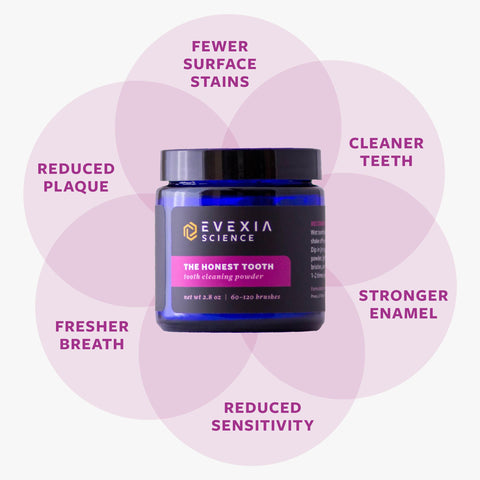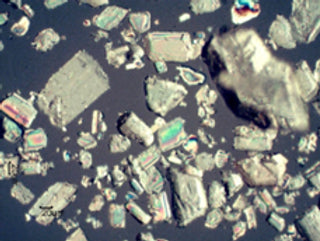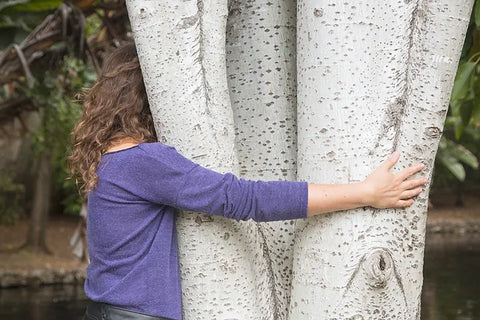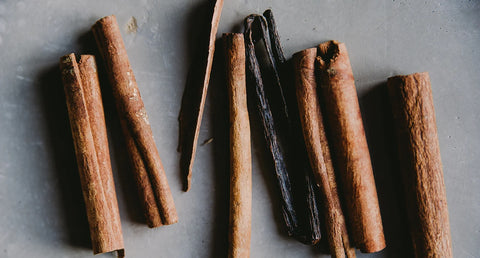The Honest Tooth is scientifically designed to control bacteria that cause bad breath, tooth decay, and plaque. Learn about its ingredients and the research that went into making it.

Introduction
Tooth decay and bad breath are caused by acid- and odor-producing bacteria. The Honest Tooth is formulated with baking soda which alkalizes the mouth to neutralize tooth-eating acids, as well as cleans and polishes teeth to fight plaque. It also contains antimicrobial compounds such as monolaurin, xylitol, cinnamon oil, and clove oil which kill harmful microbes in the mouth. In this post, we will break down all of the ingredients, why they are there, and show you the science that went into making it.
Ingredient Highlights
Baking Soda (Sodium Bicarbonate)

Baking soda is the primary ingredient in The Honest Tooth. It serves multiple functions. What you will notice first, immediately after brushing, is that the fine, soft granules in baking soda polish your teeth, making them feel very smooth and clean. But the most important function of baking soda is to alkalize the mouth and neutralize acids. If you took a science class, you might remember the pH scale, which measures the number of positive hydrogen ions in the water. The scale ranges from 1 to 14, with neutral in the middle at 7, acids less than 7, and bases (alkaline) greater than 7. Acids react with alkaline things to cancel each other out, producing neutral things. Your teeth are naturally alkaline and acids produced by bacteria will eat your teeth. Baking soda reacts with acids to protect your teeth from tooth decay. As I point out in my blog post, contrary to the fears of some, baking soda is harmless to your tooth enamel.
Xylitol

Xylitol is a 5-carbon sugar alcohol or reduced sugar, that is found in many plants including plums, strawberries, cauliflower, and pumpkin, but is most commonly extracted from corn and birch trees. Bacteria cannot eat xylitol and thus it provides a nice sweetening component that won’t cause tooth decay. On top of this, xylitol has antibacterial and antiplaque properties that help keep your teeth healthy.
S. mutans is a bacterium that is a significant contributor to tooth decay. S. mutans creates a biofilm that allows it to stick to the surface of teeth and protect it from brushing. This biofilm is what we call plaque, and if it’s not removed it can cause tooth decay. Many human studies have found positive evidence that xylitol reduces oral S. mutans levels [1] as well as inhibits plaque formation in the mouth [2].
Monolaurin

Monolaurin is the secret ingredient in The Honest Tooth that you won't find in any other toothpowder or toothpaste. It removes more plaque than any other product ingredient. Monolaurin is a fat that is enzymatically derived from coconut oil. It is also found in human breast milk (although, rest assured. It has been well-studied for its antibacterial and antiplaque properties [3]. Rats given a high-sugar diet and monolaurin had less dental plaque formation than control rats on high-sugar diets alone [4,5]. Monolaurin was also found to inhibit biofilm formation from S. mutans [6].
Cinnamon and Clove Essential Oils

Cinnamon and clove essential oils serve two functions—to freshen your breath as well as kill bacteria that cause tooth decay. Many studies have been done, both in humans and in petri dishes, showing that cinnamon essential oil kills S. mutans [7–11].
Peppermint and Wintergreen

Added for cooling the spiciness of the cinnamon and clove oils as well as for flavor.
Learn more about The Honest Tooth by clicking here
► References
- Söderling E, Pienihäkkinen K. Effects of xylitol and erythritol consumption on mutans streptococci and the oral microbiota: a systematic review. Acta Odontol Scand. 2020;78(8):599-608. doi:10.1080/00016357.2020.1788721
- Loimaranta V, Mazurel D, Deng D, Söderling E. Xylitol and erythritol inhibit real-time biofilm formation of Streptococcus mutans. BMC Microbiol. 2020;20(1):184. doi:10.1186/s12866-020-01867-8
- Schlievert PM, Kilgore SH, Seo KS, Leung DYM. Glycerol Monolaurate Contributes to the Antimicrobial and Anti-inflammatory Activity of Human Milk. Sci Rep. 2019;9(1):14550. doi:10.1038/s41598-019-51130-y
- Ka W, Br S, Jl M, Gk S, S K. Influence of selected fatty acids upon plaque formation and caries in the rat. Arch Oral Biol. 1982;27(12). doi:10.1016/0003-9969(82)90007-3
- Lynch P, Schemmel RA, Kabara JJ. Anticariogenicity of Dietary Glycerol Monolaurin in Rats. Caries Res. 1983;17(2):131-138. doi:10.1159/000260661
- Ham Y, Kim TJ. Inhibitory activity of monoacylglycerols on biofilm formation in Aeromonas hydrophila, Streptococcus mutans, Xanthomonas oryzae, and Yersinia enterocolitica. SpringerPlus. 2016;5(1):1526. doi:10.1186/s40064-016-3182-5
- Gandhi HA, Srilatha KT, Deshmukh S, Venkatesh MP, Das T, Sharieff I. Comparison of Antimicrobial Efficacy of Cinnamon Bark Oil Incorporated and Probiotic Blend Incorporated Mucoadhesive Patch against Salivary Streptococcus mutans in Caries Active 7-10-year-old Children: An In Vivo Study. Int J Clin Pediatr Dent. 2020;13(5):543-550. doi:10.5005/jp-journals-10005-1818
- Ács K, Balázs VL, Kocsis B, Bencsik T, Böszörményi A, Horváth G. Antibacterial activity evaluation of selected essential oils in liquid and vapor phase on respiratory tract pathogens. BMC Complement Altern Med. 2018;18(1):227. doi:10.1186/s12906-018-2291-9
- Lapinska B, Szram A, Zarzycka B, et al. An In Vitro Study on the Antimicrobial Properties of Essential Oil Modified Resin Composite against Oral Pathogens. Mater Basel Switz. 2020;13(19):E4383. doi:10.3390/ma13194383
- Wiwattanarattanabut K, Choonharuangdej S, Srithavaj T. In Vitro Anti-Cariogenic Plaque Effects of Essential Oils Extracted from Culinary Herbs. J Clin Diagn Res JCDR. 2017;11(9):DC30-DC35. doi:10.7860/JCDR/2017/28327.10668
- Khan M, Alkhathlan HZ, Khan ST. Antibiotic and Antibiofilm Activities of Salvadora persica L. Essential Oils against Streptococcus mutans: A Detailed Comparative Study with Chlorhexidine Digluconate. Pathogens. 2020;9(1):66. doi:10.3390/pathogens9010066


Comments
1 comment
Have you thought to put a warning on your product regarding it’s toxicity to dogs?